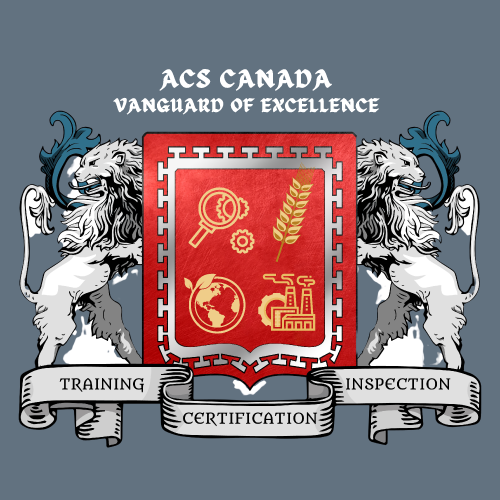ISO 14006 CERTIFICATION

ECO DESIGN CERTIFICATION
ISO 14006 is a comprehensive guideline that empowers enterprises to create, implement, and continuously improve their eco-design management within an environmental management system (EMS). This guideline is particularly valuable for companies that have already established an EMS based on ISO 14001, but it can also be seamlessly integrated into other management systems. ISO 14006 applies to organizations of all types, sizes, and product offerings, and focuses on product-related environmental aspects that can be managed and influenced by the organization.
In today's world, organizations are increasingly recognizing the importance of preventing negative environmental impacts caused by their products. They understand the necessity of incorporating environmental considerations into the design and development phase using a life cycle thinking approach.This encompasses steps such as material sourcing, design and development, production, delivery, usage (including reuse, maintenance, repair, remanufacturing, refurbishing, and upgrading), end-of-life treatment, and disposal. Other terms that are often used interchangeably with "Eco-design" include:
-Design for Environment (DfE): This term emphasizes the importance of considering environmental factors during the design phase, aiming to minimize resource consumption, waste generation, and pollution throughout the product's life cycle.
-Environmentally Conscious Design (ECD): This term highlights the awareness and mindfulness of designers in incorporating eco-friendly elements into their designs, considering factors such as materials, energy efficiency, and environmental impact.
-Ecologically Sustainable Design: This term emphasizes the goal of creating designs that are in harmony with the natural environment, promoting the conservation of resources, biodiversity, and ecological balance.
-Green Design: This term refers to the use of environmentally friendly practices and materials in design and development. It emphasizes the incorporation of renewable resources, energy efficiency, and waste reduction.
A few simple samples that illustrate the principles of designing products and services with a focus on minimizing environmental impact and promoting sustainability:
-Energy-efficient appliances: Designing household appliances, such as refrigerators or washing machines, with energy-efficient features helps reduce electricity consumption and lowers carbon emissions. These appliances may include energy-saving modes, intelligent sensors to optimize energy usage, or improved insulation for better thermal efficiency.
-Sustainable packaging: Designing packaging materials that are eco-friendly and easily recyclable can significantly reduce waste. For example, using biodegradable or compostable materials, minimizing excessive packaging, and opting for recyclable or reusable packaging solutions are effective ways to promote sustainability.
-Eco-friendly transportation: Designing vehicles and transportation systems with sustainability in mind can have a positive impact on the environment. This includes developing electric or hybrid vehicles that reduce greenhouse gas emissions, designing efficient public transportation systems to encourage mass transit usage, and incorporating bike lanes or pedestrian-friendly features to promote eco-friendly commuting.
-Renewable energy systems: Designing buildings or infrastructure with renewable energy systems, such as solar panels or wind turbines, helps reduce reliance on fossil fuels and decreases carbon footprint. These systems can generate clean energy for powering buildings, reducing the environmental impact associated with energy consumption.
-Sustainable materials and manufacturing: Designing products using sustainable materials and implementing environmentally friendly manufacturing processes can significantly minimize environmental impact. For instance, using recycled materials, responsibly sourced wood, or bio-based materials reduces the depletion of natural resources and decreases pollution levels during manufacturing.
-Water conservation features: Designing products and services with water-saving features helps promote sustainability in water usage. This can include low-flow faucets or showerheads, dual-flush toilets, or smart irrigation systems that optimize water usage for landscaping purposes.
In line with ISO 9001 requirements, organizations must define, execute, and manage a robust design and development process. ISO 14001 and ISO 9001 specifically mandates that eco-design be integrated into all design and development plans. Organizations must make explicit decisions on how to address environmental factors, including associated risks and opportunities. Environmental criteria should be incorporated throughout the review, verification, and validation processes, and should form an integral part of the environmental obligations of design and development.
At ACS Canada, we have developed specialized training and consultancy services tailored to support the successful implementation of eco-design in both manufacturing and service industries. Our comprehensive Eco-design courses equip organizations with the necessary knowledge and practical strategies to seamlessly integrate eco-design principles into their operations, leading to enhanced environmental performance and sustainable business practices.
Why Choose ACS Canada for Eco-design Implementation and Certification?
Choosing ACS Canada as your partner for eco-design implementation and certification offers a range of compelling advantages:
1. Expertise and Experience: ACS Canada has extensive experience in providing certification and consultancy services in the field of environmental management. Our team of experts possesses in-depth knowledge of ISO standards, including ISO 14006, ensuring a thorough and accurate assessment of your organization's eco-design management.
2. Validity and Recognition: As an accredited certification body, ACS Canada's certificates carry international recognition and credibility. Our certifications are widely accepted and respected by stakeholders, customers, and partners, enhancing the reputation and credibility of your organization.
3. Tailored Solutions: We understand that every organization is unique, with specific requirements and challenges. ACS Canada takes a customized approach, tailoring our services to meet your organization's specific needs. Our experts work closely with you, providing personalized guidance and support throughout the eco-design implementation journey.
4. Comprehensive Assessment: ACS Canada conducts a comprehensive assessment of your organization's eco-design management system, ensuring compliance with ISO 14006 requirements. Our auditors thoroughly review your processes, documentation, and practices to identify areas for improvement and provide actionable recommendations.
5. Continuous Support: Our commitment to your success goes beyond certification. ACS Canada offers ongoing support and guidance, helping your organization maintain compliance with ISO 14006 and fostering a culture of continuous improvement. We provide resources and expertise to further enhance your eco-design practices and drive sustainable outcomes.
By choosing ACS Canada for eco-design implementation and certification, you gain access to our expertise, credibility, tailored solutions, comprehensive assessments, and continuous support. Together, we can help your organization achieve sustainable business practices, reduce environmental impacts, and position yourself as a leader in environmental responsibility.
Training at ACS Canada
ACS employs accelerated learning methods to ensure a comprehensive grasp of all certificates. Our approach involves contextualizing your learning through a wide array of options, including classroom instruction, workshops, as well as interactive and online sessions.
ISO 14006 CERTIFICATION Training - 1

ISO 14067 Carbon Footprint
Quantification of the carbon footprint of a product
More About This CourseISO 14006 CERTIFICATION Training - 2

ISO 14007 Training Course
The aim of this course is to provide delegates with the knowledge and skills required to understand guidelines and steps of environmental costs and benefits-ISO 14007 and sustainability. ISO 14007 environmental costs and benefits concept: ISO 14007: “Environmental costs are any costs related to the environment, which can result from, for example, the loss of […]
More About This CourseISO 14006 CERTIFICATION Training - 3

ISO 14006 Eco-Design
The aim of this course is to provide delegates with the knowledge and skills required to understand guidelines of Eco-Design-ISO 14006 and sustainability. ISO 14006 concept of Eco Design: ISO 14006: “Organizations are recognizing both the need to reduce adverse impacts on the environment from their product(s) and the need to include environmental considerations in […]
More About This CourseISO 14006 CERTIFICATION Training - 4

ISO 50001 Requirements
The aim of this course is to provide delegates with the knowledge and skills required to understand requirements and documentation against the requirements of EnMS-ISO 50001
More About This CourseISO 14006 CERTIFICATION Training - 5

Energy Saving Training Course
Through our training programs, we offer companies tools, resources, and training to help improve their organization’s energy understanding and performance. With our energy specialist mentor who are experienced as a registered energy advisor, we train companies and individuals to improve their sights of energy management and cut utility costs. Energy Mentor training empowers participants to […]
More About This CourseISO 14006 CERTIFICATION Training - 6
ENVIRONMENTAL MANAGEMENT

ISO 14001 – Lead Auditor
This course aims to teach the principles and practices of ISO 14001 third-party audits. This course could be certified by Exemplar Global.
More About This CourseISO 14006 CERTIFICATION Training - 7
INTERNAL AUDITOR COURSE

ISO 14001 – Internal Auditor
This course aims to teach the principles and practices of effective Environmental Management System first and second-party audits.
More About This CourseISO 14006 CERTIFICATION Training - 8
REQUIREMENTS AND DOCUMENTATION

ISO 14001 Requirements
The aim of this course is to provide delegates with the knowledge and skills required to understand ISO 14001 requirements and documentation.
More About This Course
